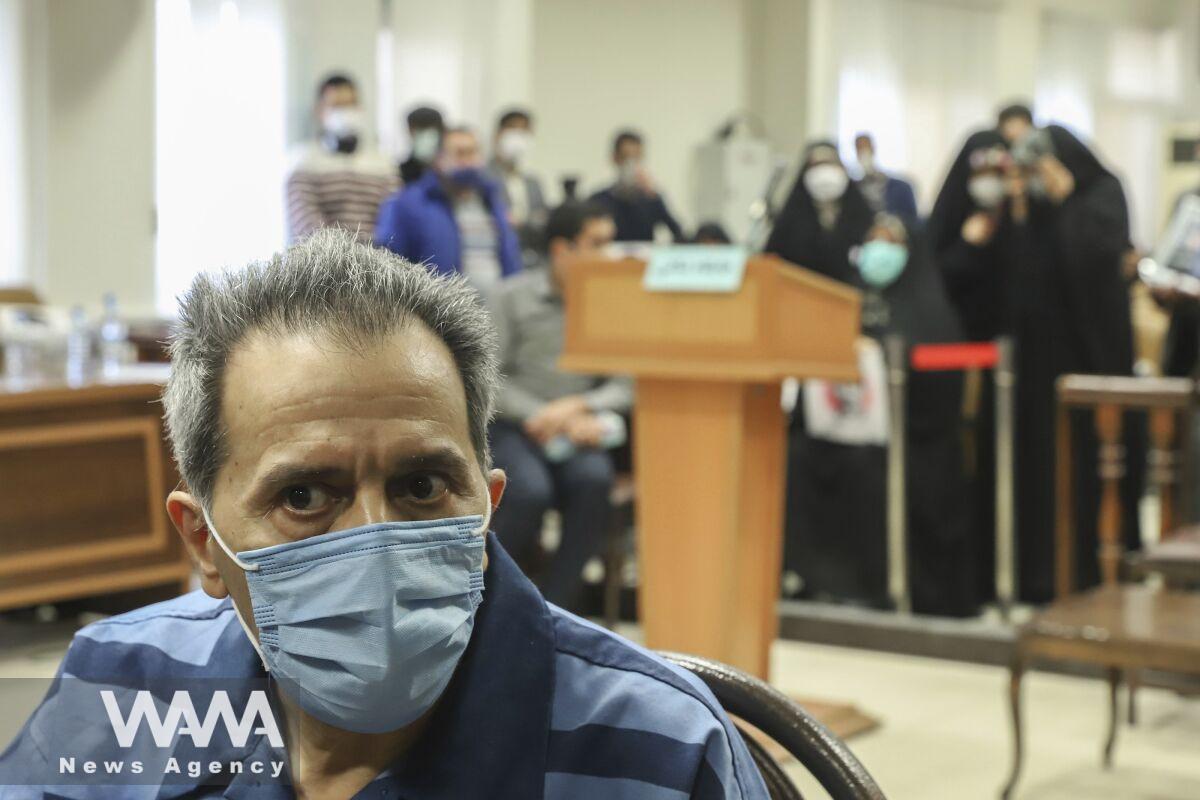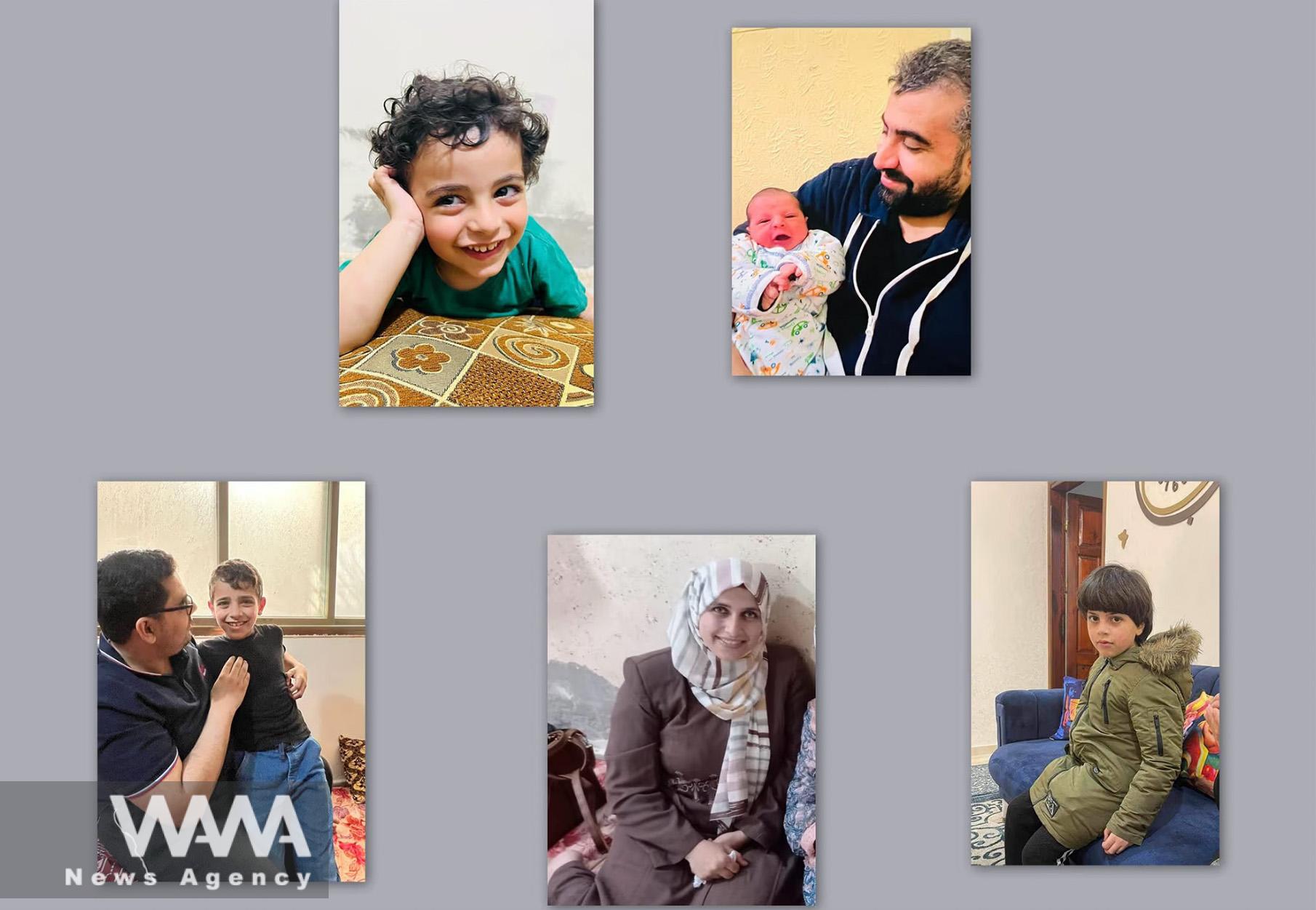Germany: Defender of an Iranian Terrorist, Supporter of Israel’s Child-Killing Policies
WANA (Nov 03) – Jamshid Sharmahd, an Iranian-German citizen and leader of the Thunder terrorist group, was executed in Iran a few days ago. One of the primary accusations against Sharmahd was orchestrating a terrorist attack on a mosque in Shiraz, Iran, which resulted in 14 deaths and over 200 injuries—a tragic incident recognized as a clear assault on innocent civilians. According to Iranian authorities, there was ample evidence, and a firm response to this act was deemed necessary.
The German government responded with a protest, labeling the execution a human rights violation. Chancellor Olaf Scholz called it a “scandal,” writing on X (formerly Twitter): “The execution of Jamshid Sharmahd by the Iranian regime is a huge disgrace, and I condemn it in the strongest terms.”
Notorious Terrorist Executed in Iran
“Jamshid Sharmahd,” leader of the #terrorist group “Kingdom Assembly” known as “Thunder,” who, for years at the behest of his superiors in Western, #American, and #Israeli intelligence agencies, planned numerous terrorist operations against… pic.twitter.com/saTyw8fukW
— WANA News Agency (@WANAIran) October 28, 2024
Annalena Baerbock, Germany’s Foreign Minister, also condemned the execution, stating that Iran’s actions would have “serious consequences” and claiming this act violated fundamental human rights principles. Following these statements, Germany recalled its ambassador from Tehran and summoned the Iranian ambassador in Berlin.
Iran’s response, however, was firm and clear: “A German passport grants no immunity, least of all for a terrorist criminal.”
Iranian Foreign Minister Abbas Araghchi accused Germany of applying double standards, emphasizing that “Germany is the second-largest supplier of deadly weapons to Israel.”
In a pointed message on X, Araghchi addressed Baerbock directly: “Stop hiding behind psychological games, Ms. Annalena Baerbock. Stop supporting child killers and terrorists and don’t shield yourself behind hypocritical human rights slogans. We haven’t forgotten the chemical weapons that German nationals provided to Saddam’s regime. Your government is complicit in Israel’s ongoing genocide. Look around—your own people mock your arrogant human rights claims.”

Araghchi: No Terrorist Will Find Impunity in Iran, Even with German Support
WANA (Oct 29) – Following summoning Iran’s chargé d’affaires in Berlin and strong objection to the Iranian government regarding execution of Jamshid Sharmahd an Iranian-German dual national, leader of the “Thunder” terrorist group by Germany, Seyed Abbas Araghchi, Iran’s FM in a post on his official social media account on X, stated: “A German passport […]
Sharmahd’s family and human rights organizations had previously urged Germany to use all diplomatic tools to prevent his execution. Germany’s economic and political ties with Iran likely limited its response during his detention.
After the execution, however, Germany’s protest drew more attention, raising questions among some observers about inconsistencies in Germany’s foreign policy. Iranian legal expert Reza Nasri commented, “The German people worked for 50 years to distance the name ‘Germany’ from the genocide committed by Hitler. But in just one year, Annalena Baerbock has once again associated Germany with the genocide now conducted by Netanyahu.”

Jamshid Sharmahd, a terrorist group ringleader – Social Media / WANA News Agency
Germany’s Double Standards
This type of response suggests a double standard in Germany’s foreign policy. In the Sharmahd case, the German government stressed its responsibility to protect its citizens as a defender of human rights, even if the crime occurred in another country.
However, just a few months ago, a German-Palestinian doctor named Dr. Youssef Abu Jadallah and his six family members were killed in an Israeli airstrike on their home in Gaza. Dr. Abu Jadallah worked in a Dortmund hospital and had returned to Gaza to visit relatives before he and his family were killed in the bombing. The German government showed no reaction to this tragedy, despite responding intensely to the execution of a terrorist with a German passport in Iran.

German-Palestinian citizen, Dr. Youssef Abu Jadallah and his six family members who were killed in an Israeli airstrike on their home in Gaza. Social Media / WANA News Agency
Such contradictory responses underscore the differences in Germany’s policy toward Iran and Israel. Friedrich Merz, leader of Germany’s Christian Democratic Union, stated, “The diplomatic approach with Iran has failed, and Germany must reduce diplomatic ties with Iran and impose more severe sanctions.”
Meanwhile, Israel remains a crucial ally for Germany in the Middle East, making it a sensitive topic in German foreign policy. This variance in Germany’s relations with Iran and Israel appears to play a pivotal role in the country’s contrasting responses to these two cases.

Germany Summons Iranian Diplomat Over Execution of Dual National
WANA (Oct 29) – Following the execution of Jamshid Sharmahd, leader of the “Thunder” terrorist group and an Iranian-German dual national, Germany’s Foreign Ministry announced it has summoned Iran’s chargé d’affaires in Berlin and recalled its ambassador from Tehran for consultations. Previously, the German Foreign Ministry had condemned the execution, expressing strong disapproval. The […]
One critic of Germany’s double standards noted: “Behind these suits and European smiles lies a ferocious beast that feeds on human blood and supports all terrorists unconditionally.”
The Sharmahd case and the tragic incident involving Dr. Youssef Abu Jadallah’s family reveal stark contradictions in Germany’s foreign policy, raising fundamental questions about whether “human rights” and the protection of its citizens are truly Germany’s top priorities, or if these commitments are forgotten when they conflict with diplomatic and political interests.
Confession of #Sharmahd on Receiving Orders for #Assassination from the #Israeli Regime’s Army
The leader of the #terrorist group “#KingdomAssembly” known as “#Thunder“:
We had contact with two individuals who managed the Israeli Army’s Telegram channel.
They set the framework… pic.twitter.com/2oUhEgymoJ— WANA News Agency (@WANAIran) November 1, 2024














User comments